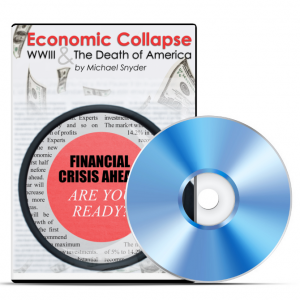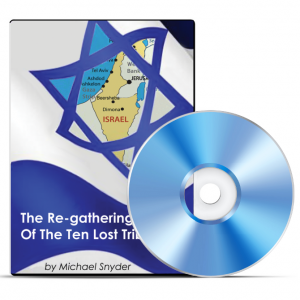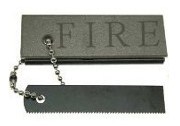|
|

For the last several years, our family – Dan, our son Jesse and I – have been living what some may call the “survivalist” lifestyle. Actually, we live the off-grid (so far off the grid that there is no land line and no cell phone service available), self-sufficient life. We’re not here to get away from the world for a few days while chaos happens and calms down – we don’t think that’s the way it will go, anyway. We’re here because we have chosen to separate ourselves from the rate race, the system, and not be swept away in the tide of what we see as society running amok. This is not a temporary lifestyle to us, it’s a wonderfully peaceful, sometimes difficult and always rewarding life. Regardless of what does or doesn’t happen “out there”, this is how we choose to live.
We were basically “city folk”. But over the past 20-plus years, we formulated, clarified and realized our vision to make the transformation to our current life. We understand the fear and panic many are now feeling in contemplating making a lifestyle change in a short time because world events require that it be done. That is why we wrote our book, Surviving Survivalism – How to Avoid (Read more....) […]

Emergencies can happen to anyone and anywhere, including our children. As much as we want to be there to protect our child, we may not always be able too. So here are 5 things you can teach your child so that they know how to handle an emergency without your help:
Educate:
Your child needs to know all the possible emergencies that could happen whether that is natural disasters or dealing with strangers. The more they know, they more they will be able to handle an emergency situation. With each emergency they need to know what can be expected, as well as to expect the unexpected, what to do when it happens and how to keep safe. Create emergency plans and practice!
Seek help:
Teach your children who to contact during an emergency. They need to know how to dial 9-1-1 as well as notify an adult or parent for help. Keep a list of important phone numbers at every phone within in your home, always place 9-1-1 at the top of the list.
Stay calm:
It is important that your child knows how to remain calm and keep a clear head during an (Read more....) […]
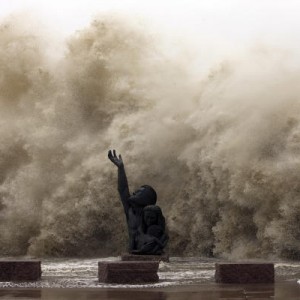 Having lived in Houston, Texas off and on for many years, I was used to much-hyped hurricanes heading our way from the Gulf that, when they finally arrived, did little but dump a bunch of rain on the city and make everyone panic. This was usually a humorous and benign phenomenon that led to nothing more than long lines at the grocery stores. But after 2005, when Hurricane Rita hit and there were actually fatalities caused NOT by the actual storm but the panicked evacuation (this was right after Katrina, remember), I resolved to stay calm and stay in town next time. Having lived in Houston, Texas off and on for many years, I was used to much-hyped hurricanes heading our way from the Gulf that, when they finally arrived, did little but dump a bunch of rain on the city and make everyone panic. This was usually a humorous and benign phenomenon that led to nothing more than long lines at the grocery stores. But after 2005, when Hurricane Rita hit and there were actually fatalities caused NOT by the actual storm but the panicked evacuation (this was right after Katrina, remember), I resolved to stay calm and stay in town next time.
Photo Credit Hurricane Ike sweeps ashore in Galveston
“Next time” turned out to be 2008 and Hurricane Ike. We took the day off from work as the mayor ordered, boarded up the windows, “battened down the hatches” and waited. Arriving late in the night, the storm was a sight to see. Flashes of green light appeared on the horizon as the transformers blew.
When we woke (Read more....) […]
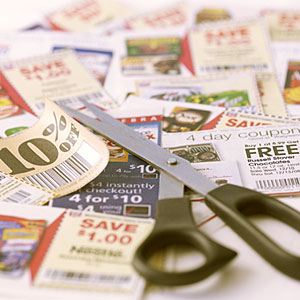 Most emergency preparedness experts recommend having enough food, water, and supplies to last at least two weeks in the case of a disaster. It can be difficult to find the money to set aside enough to see your family through a fourteen day period, however. With coupons, you can easily find great deals on the things that you need for your emergency supplies without making a big dent in your regular monthly budget. Most emergency preparedness experts recommend having enough food, water, and supplies to last at least two weeks in the case of a disaster. It can be difficult to find the money to set aside enough to see your family through a fourteen day period, however. With coupons, you can easily find great deals on the things that you need for your emergency supplies without making a big dent in your regular monthly budget.
Start With the Basics
Water, food, and medical supplies are all important to have on hand. But which of these items should you begin purchasing and storing first? When you don’t have a lot of extra money to spend, you will want to start with the basics and purchase items when they are on sale. By using a coupon for an item that is already at a reduced price, you stock up on the things that you need at a much faster rate than buying items at full price.
According to the website Ready.Gov, you need the following on hand:
· One gallon of water per person, per day.
· Enough food for each person, preferably dried or canned foods.
· Pliers, scissors, and other common tools.
· Medical supplies, such as bandages, prescription medications, and over the counter (Read more....) […]
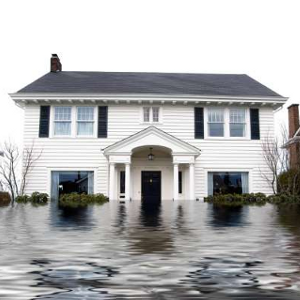 What to do Before and After a Flood By Scott Patrick Humphrey What to do Before and After a Flood By Scott Patrick Humphrey
Climate change is a reality that is affecting many of the eco-systems all around the planet, and weather patterns have had considerable changes over the past decade due to the increases moisture in the atmosphere. Thanks to global corporate pollution we have had a massive spike in temperatures as well as a drastic increase in the loss on the Antarctic ice sheet. The effect has caused massive damages to communities all around the country, and we need to stay prepared for more in the future.
As summer approaches, one might be tempted into passivity by the unfurling of lawn chairs, the cracking open of beer bottles and the hum of air conditioning units, but the coming of summer also signals a real need for preparedness as for much of the country it signifies the start of hurricane season. Beginning around the 1st of June, hurricane season can wreak havoc on coastal cities and homeowners alike. However, the real danger of hurricanes lies not as much with the strong winds or rock-solid hail, but rather with the flooding that it causes.
Whereas broken windows and fallen trees can be repaired with effort, flooding can be much more complicated to tackle, often requiring the need (Read more....) […]
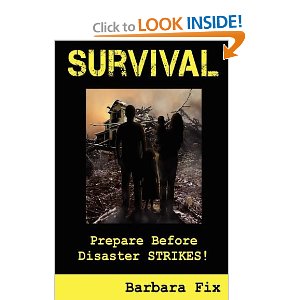 If you have already begun putting food storage aside for the tough times that lay ahead, then it’s likely you have thought about a getaway cabin. This is especially true if you live in a city, or a heavily populated suburb or town. Many of us have experienced financial set backs over the past few years, and the dream of a cabin with a well and enough property to grow a garden may appear to be an impossibility at first blush. The good news is that’s not always the case. A basic, no frills cabin is all you need. In fact, a no frills cabin is preferable over a showpiece that will draw the attention of looters. If you have already begun putting food storage aside for the tough times that lay ahead, then it’s likely you have thought about a getaway cabin. This is especially true if you live in a city, or a heavily populated suburb or town. Many of us have experienced financial set backs over the past few years, and the dream of a cabin with a well and enough property to grow a garden may appear to be an impossibility at first blush. The good news is that’s not always the case. A basic, no frills cabin is all you need. In fact, a no frills cabin is preferable over a showpiece that will draw the attention of looters.
If You Can’t Buy, Then Rent
If you can’t afford to purchase a getaway cabin, consider renting. This narrows your choices, but better to have a safe haven than wishful thinking.
Pool Resources
If you have friends or family members who are likewise interested in a getaway cabin, consider joining forces with them to begin searching for a rental or the outright purchase of a cabin. As long as there is enough floor space to sleep everyone, it will be a slice of Heaven if ever conditions arise where a getaway cabin is (Read more....) […]
 When you think of items to pack in a survival kit, what comes to mind? You probably think of things like water, energy bars, batteries, a first aid kit and blankets. When most people think of packing a survival kit, they think of basics that are necessary to keep their families alive. Things like spare clothes and shoes seem like dead weight when you are thinking in terms of a life and death scenario. Spare clothing is not a luxury in an emergency, however. Clothing and shoes are necessary to keep your family warm, dry and protected from things like debris and hazardous waste that can be spilled during emergency situations. Dry, clean clothing and shoes that fit can also make the difference between a comfortable stay in a temporary shelter and a week spent wearing someone’s old golf clothes. When you think of items to pack in a survival kit, what comes to mind? You probably think of things like water, energy bars, batteries, a first aid kit and blankets. When most people think of packing a survival kit, they think of basics that are necessary to keep their families alive. Things like spare clothes and shoes seem like dead weight when you are thinking in terms of a life and death scenario. Spare clothing is not a luxury in an emergency, however. Clothing and shoes are necessary to keep your family warm, dry and protected from things like debris and hazardous waste that can be spilled during emergency situations. Dry, clean clothing and shoes that fit can also make the difference between a comfortable stay in a temporary shelter and a week spent wearing someone’s old golf clothes.
In an emergency that requires evacuation, you can expect to have little time to gather the things you will need, including crucial papers and family photo albums. Even if packing spare clothing is at the top of your priority list, gathering (Read more....) […]
|
|








